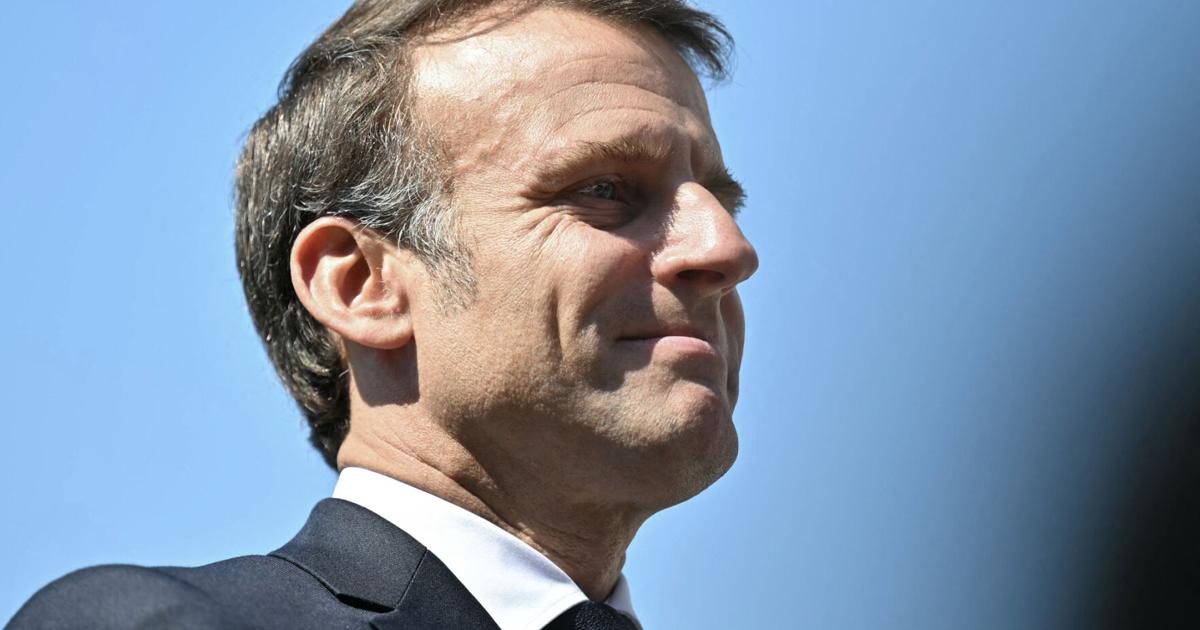NEW YORK — France recognized a Palestinian state on Monday, overcoming a monthslong push by the Trump administration to intimidate and discourage countries from working with Paris on the initiative.
Secretary of State Marco Rubio had tried to kill the initiative in the cradle, issuing cables to U.S. embassies and consulates around the world in June and this month to discourage attendance at France’s meetings and publicly slamming the effort as a “gift to Hamas.”
But on Monday, at the outset of the United Nations General Assembly, French President Emmanuel Macron and his Saudi co-hosts assembled a large gathering of world leaders and top diplomats spanning Europe, the Middle East, Africa, Asia and Latin America. A speakers list included the presidents of Brazil, Turkey, South Africa and Indonesia; prime ministers of Australia, Canada, Spain, Belgium and Ireland; kings of Jordan and Monaco; the U.N. secretary general; and many other dignitaries.
“The time has come,” Macron said, addressing the U.N. General Assembly. “I declare that today France recognizes the state of Palestine,” he said to a wave of applause.
Macron recruited key U.S. allies in the effort, including Britain, Canada, Australia and Portugal, which all recognized a Palestinian state on Sunday.
The effort is a morale boost to the Palestinians, but it will create no immediate changes on the ground, where Israel’s far-right government has ruled out the creation of a Palestinian state. Israeli U.N. Ambassador Danny Danon called the event a “circus.”
White House press secretary Karoline Leavitt condemned the recognition effort, saying it “does not do anything to release the hostages, which is the primary goal right now in Gaza,” and “does nothing to end this conflict and bring this war to a close.”
“These decisions are just more talk and not enough action from some of our friends and allies,” she added.
In response to the recognition effort, the Trump administration barred Palestinian leaders from obtaining visas to attend the New York event. As a work-around, the U.N. General Assembly voted Friday to allow Palestinian Authority President Mahmoud Abbas to address the gathering via video.
Critics of Trump say the event has shown the United States is outnumbered and out-led on an issue gaining increasing prominence amid the climbing death toll in Gaza. The majority of European countries now recognize a Palestinian state.
“The United States is completely isolated, and it really is undermining our influence around the world,” Sen. Chris Van Hollen (D-Maryland) said in an interview. “The Biden administration was feckless on this, but the Trump administration is just a complete rubber stamp for Benjamin Netanyahu,” the Israeli prime minister.
“Other countries around the world, especially in the Global South, can see American double standards on human rights, and our adversaries are exploiting that,” Van Hollen added.
A State Department official rejected the notion that the U.S. was isolated. “In fact, U.S. officials are inundated with meeting requests at UNGA,” the official said, referring to the U.N. General Assembly. The official spoke on the condition of anonymity to describe sensitive diplomacy.
The gathering is unique in that it pitted the U.S. and France, two long-standing allies, against each other during the year’s most high-profile week of international diplomacy.
“There was a widespread view back in June that this conference was going to fizzle and France might not even bring itself to declare recognition,” said Richard Gowan, a U.N. expert at the International Crisis Group. “But since Macron’s announcement, the French pulled this together well in terms of stagecraft.”
The run-up to the event saw the two allies slamming each other repeatedly.
During a visit to Ecuador, Rubio accused the French recognition effort of setting back diplomatic efforts to end the war in Gaza. “The day the French announced their initiative … Hamas withdrew from the negotiation table. They immediately increased their demands,” Rubio said.
A French Foreign Ministry account on X immediately hit back, saying, “No @SecRubio, the recognition of the State of Palestine did not cause the breakdown of hostage negotiations,” which was followed by subsequent posts pointing out that Gaza talks had faltered before Macron’s comments.
In his remarks Monday, Macron emphasized France’s support for Israel’s security and batted away criticisms that his move rewards Hamas.
“This recognition of the state of Palestine is a defeat for Hamas, just like for all those who foment antisemitism, nurture anti-Zionist obsessions and who want the destruction of the state of Israel,” Macron said.
French officials have said that a key component of the recognition effort was winning broad support for a resolution condemning Hamas in the U.N. General Assembly, which passed this month with new countries joining, such as Turkey and Qatar.
France has also put forward a proposal aimed at stabilizing Gaza after a ceasefire is reached, said a French official, speaking on the condition of anonymity to discuss a sensitive plan. The proposal calls for a two-state solution, the disarmament of Hamas and the transfer of security power in Gaza to the Palestinian Authority.
But any peace plan would require the support of Israel. On Sunday, Netanyahu said he would never allow the creation of a Palestinian state, and his far-right minister called for him to annex the West Bank.
“The only response to an anti-Israeli move is sovereignty over the homeland territories of the Jewish people in Judea and Samaria, and removing the folly of the Palestinian state idea from the agenda forever,” Israeli Finance Minister Bezalel Smotrich said in a statement, referring to the West Bank by its biblical names. “Mr. Prime Minister, this is the time, and it is in your hands.”
The Trump administration continues to support a ceasefire in Gaza, but its efforts were stymied this month when Israel bombed Hamas’s negotiating team in Doha, infuriating Qatar and setting back the timeline of a hostage agreement.
